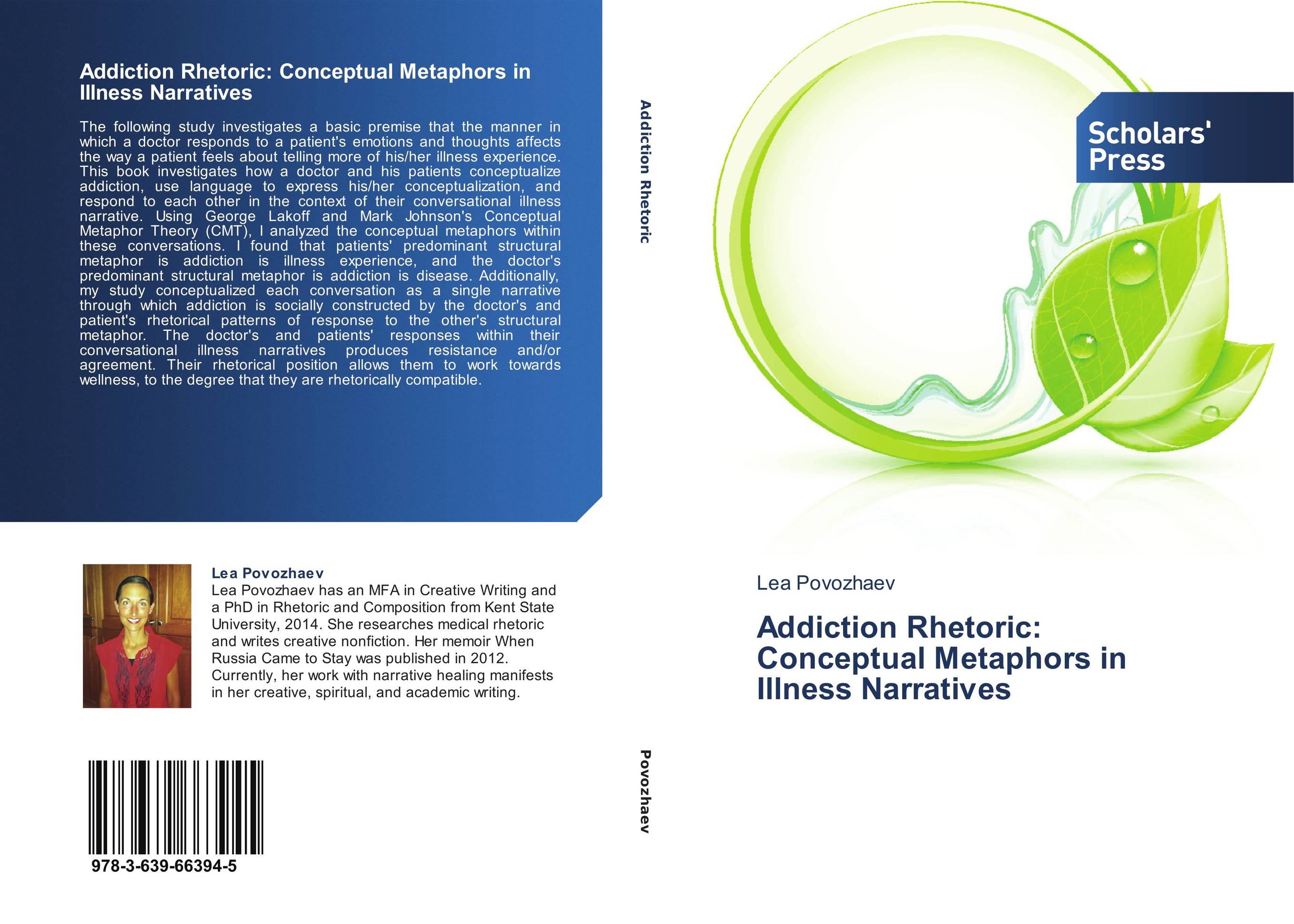| Поиск по каталогу |
|
(строгое соответствие)
|
- Профессиональная
- Научно-популярная
- Художественная
- Публицистика
- Детская
- Искусство
- Хобби, семья, дом
- Спорт
- Путеводители
- Блокноты, тетради, открытки
Addiction Rhetoric: Conceptual Metaphors in Illness Narratives.

В наличии
| Местонахождение: Алматы | Состояние экземпляра: новый |

Бумажная
версия
версия
Автор: Lea Povozhaev
ISBN: 9783639663945
Год издания: 2014
Формат книги: 60×90/16 (145×215 мм)
Количество страниц: 204
Издательство: Scholars' Press
Цена: 47683 тг
Положить в корзину
Позиции в рубрикаторе
Отрасли знаний:Код товара: 138133
| Способы доставки в город Алматы * комплектация (срок до отгрузки) не более 2 рабочих дней |
| Самовывоз из города Алматы (пункты самовывоза партнёра CDEK) |
| Курьерская доставка CDEK из города Москва |
| Доставка Почтой России из города Москва |
Аннотация: The following study investigates a basic premise that the manner in which a doctor responds to a patient's emotions and thoughts affects the way a patient feels about telling more of his/her illness experience. This book investigates how a doctor and his patients conceptualize addiction, use language to express his/her conceptualization, and respond to each other in the context of their conversational illness narrative. Using George Lakoff and Mark Johnson's Conceptual Metaphor Theory (CMT), I analyzed the conceptual metaphors within these conversations. I found that patients' predominant structural metaphor is addiction is illness experience, and the doctor's predominant structural metaphor is addiction is disease. Additionally, my study conceptualized each conversation as a single narrative through which addiction is socially constructed by the doctor's and patient's rhetorical patterns of response to the other's structural metaphor. The doctor's and patients' responses within their conversational illness narratives produces resistance and/or agreement. Their rhetorical position allows them to work towards wellness, to the degree that they are rhetorically compatible.
Ключевые слова: Communication, Identity, Healthcare, Qualitative Research, addiction, Embodiment, medical rhetoric, conceptual metaphors, Illness Narratives, doctor-patient interview, biomedical humanities



